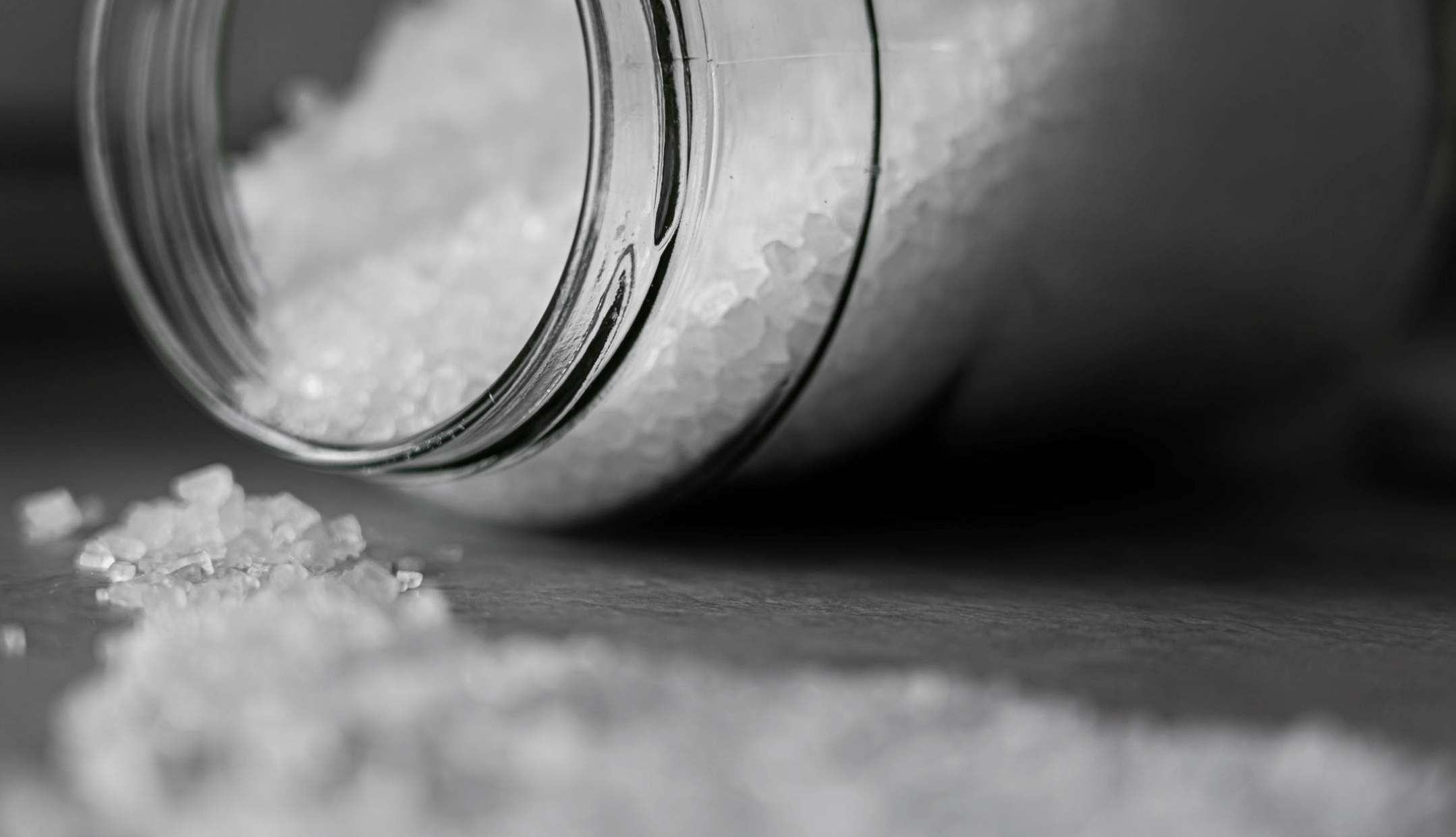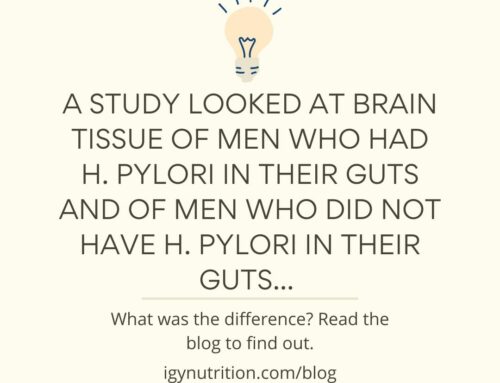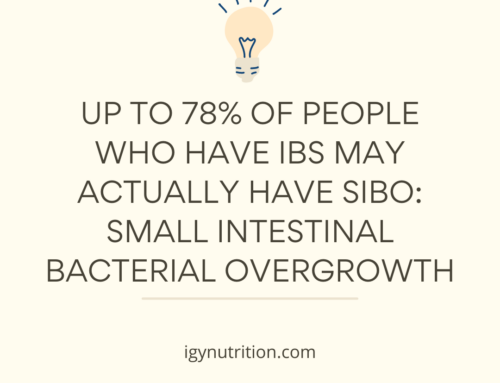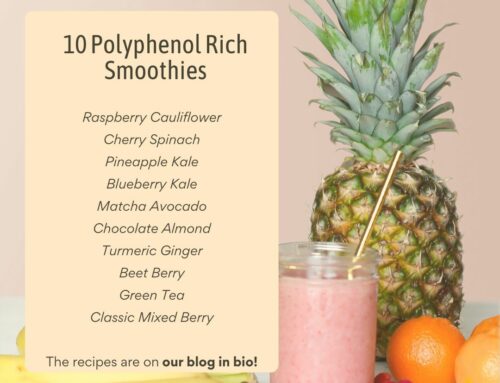Do you ever crave potato chips? French fries? What about pretzel sticks? You might be yearning for something salty!
We love salty food here at IgY Nutrition just as much as anyone else. So we decided to dig deep into the question: is salt healthy for your gut?
Let’s jump in.
Salt’s Function in the Body
Salt, or sodium chloride, is an essential nutrient (1,2). Yep, you heard that right – we need salt to maintain a healthy, functioning body. But hold on – don’t jump for the fries just yet!
Nerves and muscles depend on salt to function. Nerves use sodium and chloride to propel action potentials, the signals your brain sends to the rest of the body and vice versa. AKA, you need salt to move, think, breathe… to live (1,2)!
Salt is also necessary for hydration (1,2). In simple terms, your body uses it to hold on to water. Drinking tons and tons of water will not hydrate you if you are low on the electrolytes (salt, potassium, etc.) that allow you to keep the water instead of pee it out.
You might be thinking – why does hydration matter? We’ve got a long list of reasons for you! Hydration is essential for (2):
- Body temperature regulation
- Joint lubrication
- Cognition, memory, focus, mood
- Exercise performance
- Immune system
- Digestion (we’ll get to this below)
By regulating hydration, salt also works to control blood pressure. Too much will typically raise blood pressure, and too little will lower blood pressure (3, 4).
Blood pressure is also crucial for organ health – your organs receive nutrients and oxygen, which they need to function, through your blood (3, 4). If your blood flow is off, your organs will not work adequately.
So by now, you’re on board with us: salt is essential for whole-body health. But what does it have to do with gut health, and can too much of it be a problem?
Salt and the Gut
Salt’s role in hydration, nerve and muscle function, and blood pressure affects gut health by impacting the breakdown and absorption of food, motility, and the microbiome.
Salt and the Breakdown and Absorption of Food
Sodium and chloride also play a crucial role in absorbing nutrients in the intestines (5). Our bodies can’t use the food we eat unless it’s broken down – so, to put it simply, without salt, our bodies wouldn’t be able to use food properly.
Salt and Motility
Motility refers to the speed at which your body digests and expels food (6). Fast motility might look like going number two several times a day (think diarrhea). Slow motility might look like going every few days (think constipation).
We want to find a happy medium with motility: not too fast, not too slow.
Hydration heavily influences motility (2). Having enough fluids allows your body to expel whatever is hanging out in your gut. A lack of fluids prevents proper motility.
You’ll know this first hand if you’ve ever been constipated. Have you ever forgotten to bring your water bottle to work, only to find that your stool is hard and painful later on (sorry for the TMI)? Yep. That’s dehydration slowing down your motility.
For a healthy pace of motility, you need to have enough water and enough electrolytes in your body (2, 6).
Salt and the Microbiome
Here’s where things get tricky: there’s lots of conflicting evidence.
Some studies show that a high-salt diet increases the presence of short-chain fatty acids in the gut, which for the most part, are helpful for gut health (7). They reduce inflammation and facilitate communication through the gut-brain axis. These results are, of course, a good thing for the microbiome.
Other studies show that a high-salt diet suppresses the population of beneficial gut bugs living in the microbiome (8). Suppressing probiotic populations would likely be harmful to gut health.
There is a lot to learn about salt and the microbiome. We could ask: what type of diet were participants in these studies consuming? Were they eating a gut-healthy, fibrous, plant-rich diet with loads of salt sprinkled on top, or were their diets high in processed foods? Could this skew the results?
Either way, we know that hydration, motility, and proper breakdown and absorption of food greatly influence the microbiome. So at least some salt is needed for a healthy microbiome.
The Takeaway
We know that consuming enough salt is critical to gut health. But we also know too much salt can raise blood pressure and potentially suppress populations of good gut bacteria.
So what’s the answer? How much salt should we consume for gut health? We dive into that question in part two. Check out our blog titled “Salt and Gut Health Part 2: How Much?”
References
- https://www.cedars-sinai.org/blog/electrolytes.html
- https://www.hsph.harvard.edu/news/hsph-in-the-news/the-importance-of-hydration/#:~:text=Drinking%20enough%20water%20each%20day,quality%2C%20cognition%2C%20and%20mood.
- Grillo, Andrea et al. “Sodium Intake and Hypertension.” Nutrients vol. 11,9 1970. 21 Aug. 2019, doi:10.3390/nu11091970 https://www.ncbi.nlm.nih.gov/pmc/articles/PMC6770596/
- Sodium, hypertension, and the gut: does the gut microbiota go salty? Katarina Smiljanec and Shannon L. Lennon American Journal of Physiology-Heart and Circulatory Physiology 2019 317:6, H1173-H1182
- Wang, Chao et al. “High-Salt Diet Has a Certain Impact on Protein Digestion and Gut Microbiota: A Sequencing and Proteome Combined Study.” Frontiers in microbiology vol. 8 1838. 21 Sep. 2017, doi:10.3389/fmicb.2017.01838 https://www.ncbi.nlm.nih.gov/pmc/articles/PMC5627008/#:~:text=Although%20sodium%20chloride%20needs%20not,nutrients%20into%20the%20blood%20stream.
- https://www.sciencedirect.com/topics/medicine-and-dentistry/intestine-motility
- Bier, Ariel et al. “A High Salt Diet Modulates the Gut Microbiota and Short Chain Fatty Acids Production in a Salt-Sensitive Hypertension Rat Model.” Nutrients vol. 10,9 1154. 23 Aug. 2018, doi:10.3390/nu10091154 https://www.ncbi.nlm.nih.gov/pmc/articles/PMC6164908/
- Sodium, hypertension, and the gut: does the gut microbiota go salty? Katarina Smiljanec and Shannon L. Lennon. American Journal of Physiology-Heart and Circulatory Physiology 2019 317:6, H1173-H1182 https://journals.physiology.org/doi/full/10.1152/ajpheart.00312.2019




